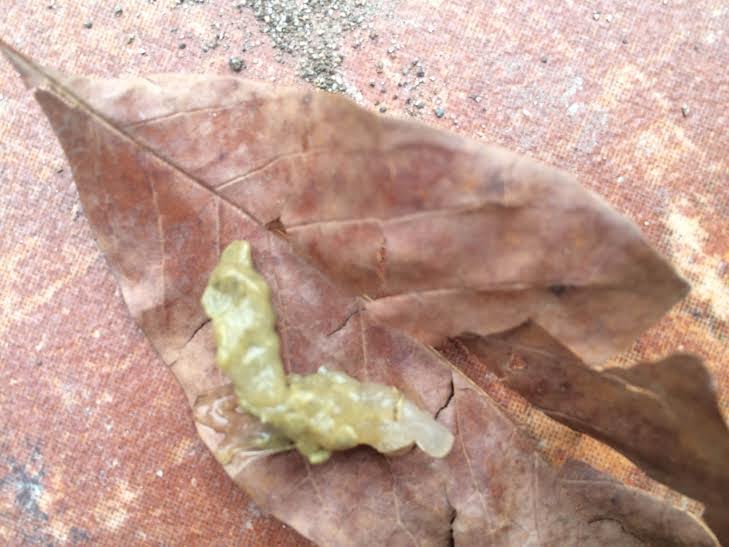That is mucoid enteritis for sure, often called weaning enteritis, but it really doesn't seem to have as much to do with weaning as it does the gi changes that kits are making around that age.
That is the age when kits are the most susceptible to anything and everything that can cause enteritis.
Kits start eating hay right in the nestbox, and take their first nibbles of pellets just about as soon as they can physically get to them.
5 week old kits will be willing and able to access their mother's food under any normal circumstances.
By force nursing...do you mean the kits are being kept separate from their mother, and are not being offered any solid foods at all???
If that is the case, than she needs to get those babies oatmeal and hay right away, along with some of their dam's (or another healthy rabbit's) cecotropes to help build up the necessary gi bacteria for digesting solid foods. Benebac is an acceptable substitute, but I prefer cecotropes because they should have all the right bacteria to digest what the rest of her rabbits are eating. The kits should eat them willingly if they are not too sick to eat.
How much pedialyte they need or can safely be given will depend on how hydrated or dehydrated the kits are. If they are drinking on their own, just mixing a bit in their water bottle or dish should be sufficient to help replace electrolytes.
Since there is already mucous, she really is at a high risk for losing the kit. No matter what is attempted. It's possible that an experienced breeder or even a veterinarian might not be able to save it now.
Hopefully she isn't too discouraged if it doesn't make it.
From medi rabbit:
http://www.medirabbit.com/EN/GI_disease ... tis_en.htm
Mucoid diarrhea is sometimes observed in growing rabbits and nursing does. The watery feces are mixed with mucus, a translucent and gelatinous substance. This particular type of enteritis has various causes, including bacterial overgrowth or nutritional deficiencies (lack of water and food low in fiber).
Treatment
As the disease develops very rapidly, treatment of bacterial enteritis often comes too late. Antibiotics and sulfonamide drugs will help prevent the growth of pathogen bacteria. Anti-diarrhea product can help stop the diarrhea, e.g. Hylak, a concentrate of lactic ferments. The administration of cholestyramine will bind toxins released by pathogen bacteria. Probiotic powders or paste, although controversial, will help the growth of the endemic healthy bacterial flora.
If the rabbit is dehydrates, subcutaneous fluids should be given. If the rabbit refuses to eat, it must be forced food, using a syringe.
In the case of yeast overgrowth, this can be treated by reduced the carbohydrates sources in the diet, or with nystatin.































